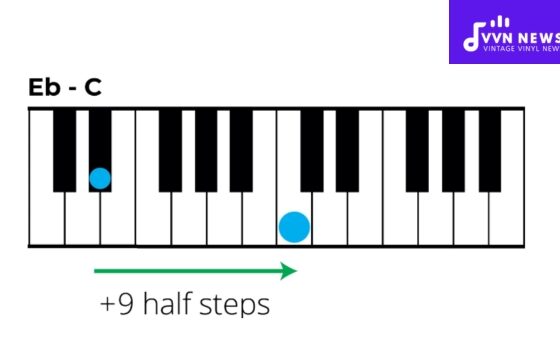We often say that music is a universal language – one that holds the power to unite people, cultures, and emotions.
But more than just being a source of entertainment and leisure, it’s also an industry filled with countless opportunities.
The sphere of music encompasses not only singers, songwriters, or musicians but also those professionals working behind the scenes. Today in this blog post, we’ll be unearthing the limitless world of ‘music business jobs & careers’.
Everything from emerging technology to innovative promotional strategies plays a key role in shaping the music industry.
Many assume that the focus of music business jobs & careers lies only on singing or band management, but there’s so much more than meets the eye.
Join me as I reveal some career prospects that you might never have considered before.
Overview of Music Business Jobs

When you peek behind the curtain of the music industry, you’ll find a bustling array of professions, each playing a unique role in producing the music we all love.
From scouting for fresh talent and crafting hit songs to organizing tours and managing legal affairs, these careers fall under multiple categories, such as artist management, music production, touring, music law, concert promotion, and even more niche roles in music technology development or music journalism.
Essentially, without these instrumental figures working tirelessly behind the scenes, the entire flow of music production would come to a standstill.
A detailed breakdown of Key Music Business Jobs
Given the multifaceted nature of the music industry, it’s no surprise that it offers a diverse array of specializations and job roles.
Here are ten key music business jobs that form the backbone of this vibrant industry.
Artist Manager
As an artist manager, your job is to guide the professional careers of artists in the music industry. This often includes advising on contract negotiations, helping with promotions, guiding brand image development, and, sometimes, even handling personal matters.
Thus, interpersonal and negotiation skills become extremely vital in this role.
Music Producer
Music Producers oversee and manage recording projects for bands and solo artists. Duties can encompass song selection, sound engineering work, coaching musicians, or operating budgets.
A good ear for music coupled with in-depth technical expertise can go a long way in becoming successful as a Music Producer.
A&R Representative
A&R (Artists and repertoire) Representatives discover new talent, sign them to record labels, and subsequently oversee their artistic development.
A deep passion for music and an understanding of consumer tastes and trends, coupled with superior networking skills, can contribute to excellence in this role.
Music Publisher
As a Music Publisher, your role would be to ensure that composers and songwriters receive royalties when their compositions are used commercially.
This involves negotiating contracts, licensing rights & managing intellectual property-related affairs in connection with the publishing of musical content.
Tour Manager
A Tour Manager is responsible for everything related to artists’ concerts – from logistics arrangements at venues to ensuring smooth coordination among various teams while on tour.
Good problem-solving skills, along with a knack for managing people, can prove beneficial in this fast-paced role.
Music Attorney
A career as a Music Attorney has blossomed into an indispensable part of the music industry due to the legal intricacies involved across many facets – contract negotiation, intellectual property rights protection, dispute resolution, etc.
Profound knowledge of entertainment laws combined with sharp negotiation skills form key qualities needed for thriving as a Music Attorney.
Concert Promoter
Promoting concerts requires strategies to bring audiences together at large-scale live events featuring bands or solo artists.
The ability to negotiate contracts with performers’ representatives and adeptness at marketing techniques play pivotal roles when you’re eyeing success as a Concert Promoter.
Music Marketer
Marketing artists or groups creatively involves designing promotion strategies to engage fans or draw new audiences for albums & concerts alike – virtually or physically! Great strategic planning capabilities coupled with a creative mindset work wonders here!
Sound Engineer
Sound Engineers are experts who manipulate sound through various types & levels of equipment during recording sessions & live performances, ensuring audio excellence! Technical understanding is vital here!
Music Business Analyst
Analysts dive deep into commercial data, helping labels make informed business decisions – right from identifying potential markets & consumption patterns to spotting emerging trends! Data interpretation skills, along with business acumen, take precedence here!
As you see, each one comes with its unique challenges but also immense satisfaction; making strides ahead opens up your world to so much more than what we perceive on the surface.
Also Read: How To Get A Music Business Degree In 2025? [Skills & Careers]
Requirements for Landing Jobs in the Music Business

The music industry is a diverse mosaic. It is filled with various roles, each having its specific requirements and prerequisites. However, some general guidelines can be followed to start your journey within the industry.
Education Requirement
While passion for music and determination hold substantial importance in this field, it’s undeniable that education can provide a significant edge. Here’s how:
Bachelor’s Degree: Many musical careers, such as music production, artist management, or music marketing, are associated with business skills.
Thus, a Bachelor’s degree in Music Business or Music Management could hone your understanding of the industry from both musical and business perspectives.
Master’s Degree: If you are looking at higher-level management positions or want to delve deeper into the intricacies of the business, a Master’s degree in Music Business might be of interest.
This level of education broadens your understanding of global music markets, copyright law, music licensing, and artist contracts.
Skill Requirement
Unlike traditional industries, where a set list of skills suffices for most roles, the music industry is quite different.
The skillset greatly varies from role to role. Here are some universal skills that can undoubtedly bolster anyone’s odds in securing a job in the music industry:
- Communication Skills: Whether it is interacting with artists, negotiating with promoters, or coordinating with other team members, effective communication is paramount.
- Organizational Skills: Managing tours, releases, or even promotional events requires meticulous planning and organization.
- Technological Proficiency: Proficient knowledge of tools necessary for your desired role could set an aspiring professional apart from others. For instance, a music producer should master various DAWs(Digital Audio Workstations) like Logic Pro or Ableton Live. Similarly, a Music Marketer would require proficiency in SEO(Search Engine Optimization) and social media platforms.
- Networking Skills: In a relationship-driven industry like the music business, creating connections with people, artists, and professionals alike is key. Building a strong network can open doors to opportunities you wouldn’t have access to otherwise.
- Entrepreneurial Mindset: In this rapidly evolving industry, having an entrepreneurial mindset could thrust your career forward. Innovating promotional strategies or creating new revenue streams can contribute significantly to your professional growth.
To recapitulate, talent and passion form the backbone of any career in the music business, but complimenting it with requisite education and skills forms an integral path towards achieving success in this visionary industry.
Salaries and Benefits in the Music Industry
When it comes to salaries in the music business, compensation varies dramatically based on several factors.
These include the specific role, the individual’s experience level, and the size and prestige of their employer.
- For instance, an entry-level music producer might earn anywhere from $20,000 – $40,000 per year, while a highly experienced producer working with top artists can earn a salary in the six or even seven figures.
- Similarly, an artist manager starting their career might expect earnings from $30,000 – $60,000 annually, while those representing high-grossing bands or musicians can earn substantially more through commission.
Moreover, benefits in these careers don’t just equate to monetary remuneration.
Working within this dynamic industry also provides countless opportunities for networking and personal growth.
Plus, you get to be part of behind-the-scenes action on concerts and music production projects. Not to mention potential perks like concert tickets or meet-and-greets.
Also Read: Scatman John [Childhood, Personal Struggle, And Career]
Explore Trends and Challenges in the Music Industry

Undeniably, the music industry has evolved tremendously over the years. While it’s had its share of shining moments, it also continues to grapple with its own set of unique obstacles.
Streaming Platforms: In the age of technology, streaming platforms have become the mode of music consumption. These platforms pay artists meager amounts per stream. This has led to significant discussions about payment models and artist compensation.
Live Performances: Due to the pandemic, live performances have been dramatically affected, which has led many in the industry to pivot towards virtual concerts. Always remember when obstacles present themselves, innovation usually follows.
The Fight for Copyrights: A persistent issue in the music business is copyright infringement. It’s a tough battle protecting intellectual property rights in an internet era where almost anything can be copied or downloaded.
Despite these challenges, opportunities are always present. For instance, technology also brings about advancements like AI-composed music and VR concerts, which are opening new avenues for careers in this exciting industry.
FAQs About Music Business
What careers are there in the music business?
There are a plethora of career options, varying from artist manager, music producer, concert promoter, sound engineer, and music business analyst.
Do I need formal education to land a job in the music industry?
While specific roles in the music industry might require formal education, many careers rely heavily on experience, passion, and an understanding of the industry.
What is the primary role of an A&R Representative?
An A&R representative’s main task involves scouting for fresh talent, signing them, recording contracts, and nurturing their career.
Is a career in the music business lucrative?
Indeed, while starting salaries might be modest, opportunities for growth and earning potential in the music business can be significant with progression and success.
What challenges am I likely to face in the music industry?
The industry is quite competitive and fast-paced. Staying updated with current trends & incorporating evolving technological tools could be challenging but is essential.
Conclusion
In the dynamic world of the music business, an array of stimulating jobs await that offer not only stability but also the deep satisfaction of being part of an industry that brings joy to millions.
From music production to concert promotion, these roles serve as the undercurrents that truly bring music to life.
Regardless of your personal interest or professional background, with enough persistence and passion, you can find a rewarding career path in this fascinating industry.








